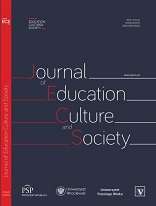The Big Five personality and temperamental traits and its correlation with styles of coping with stress in the fire brigade officers
The Big Five personality and temperamental traits and its correlation with styles of coping with stress in the fire brigade officers
Author(s): Justyna Szrajda, Malwina Tudorowska, Sławomir Kujawski, Magdalena Weber-Rajek, Ewa Sygit-Kowalska, Zdzisław Kobos, Joanna Słomko, Małgorzata Tafil-Klawe, Paweł ZalewskiSubject(s): Social Sciences, Psychology, Personality Psychology
Published by: Fundacja Pro Scientia Publica
Keywords: Personality; Temperament; Styles of coping with stress
Summary/Abstract: Selecting specific professional activities (e.g. a brigade officer) and methods for coping with difficult situations may result from personal predispositions of a given person. Personality is founded on the innate temperament. The way of dealing with stress depends on personality traits whose influence is manifested, amongst other things, in the selection of specific coping styles. The current study aim to examine the level of correlation between personality and temperamental traits with manifested coping styles. The study covered 58 volunteers – male fire brigade officers. The following tools were used: Personality Inventory, NEO-FFI, Formal Characteristics of Behaviour: Temperament Inventory – Revised Version, FCZ-KT (R) and Coping Inventory for Stressful Situations, CISS. Emotion-focused coping style for stressful situations correlates with the following traits: positively, with perseveration (r=0.5115) and with emotional reactivity (r=0.4927), and negatively, with briskness (r=-0.3926) and endurance (r=-0.5408). The task-oriented coping style for stressful situations correlates positively with extraversion (r=0.3236) and conscientiousness (r=0.3088), and negatively with neuroticism (r=-0.3368) in the NEO-FFI. The emotion-focused coping style for stressful situations is positively correlated with neuroticism (NEO-FFI) (r=0.4150).In fire brigade officers, As far as personality traits were concerned, fire brigade officers scored relatively high in extraversion, conscientiousness and low in neuroticism and were likely to demonstrate the task-oriented coping style for stressful situations. Lower level of perseveration and high level of briskness and endurance were associated with emotion-focused coping style for stressful situations. Similarly, the tendency to focus on emotions experienced in stressful situations were associated with high level of neuroticism in the study group.
Journal: The Journal of Education, Culture, and Society
- Issue Year: 8/2017
- Issue No: 2
- Page Range: 163-173
- Page Count: 11
- Language: English

